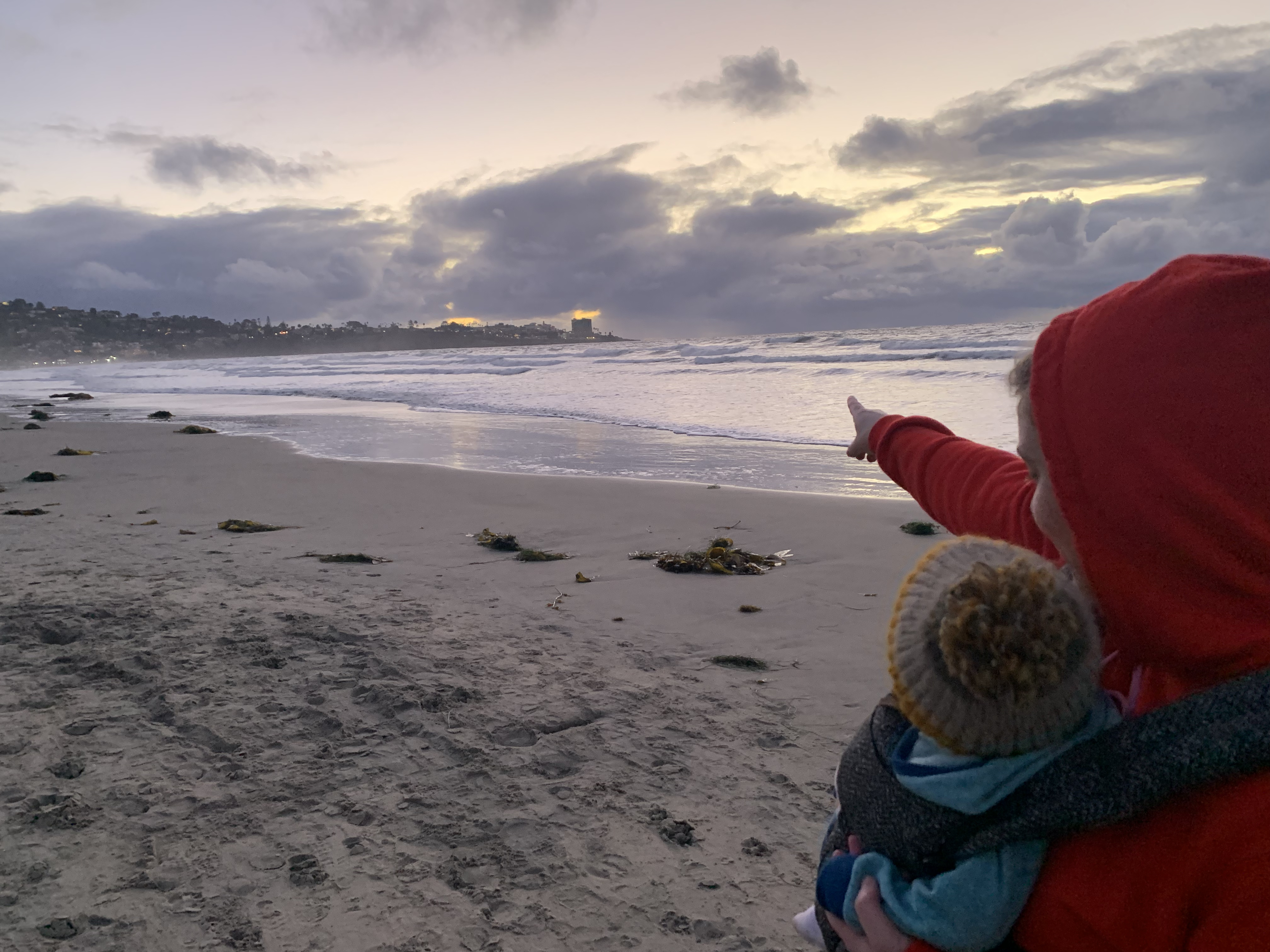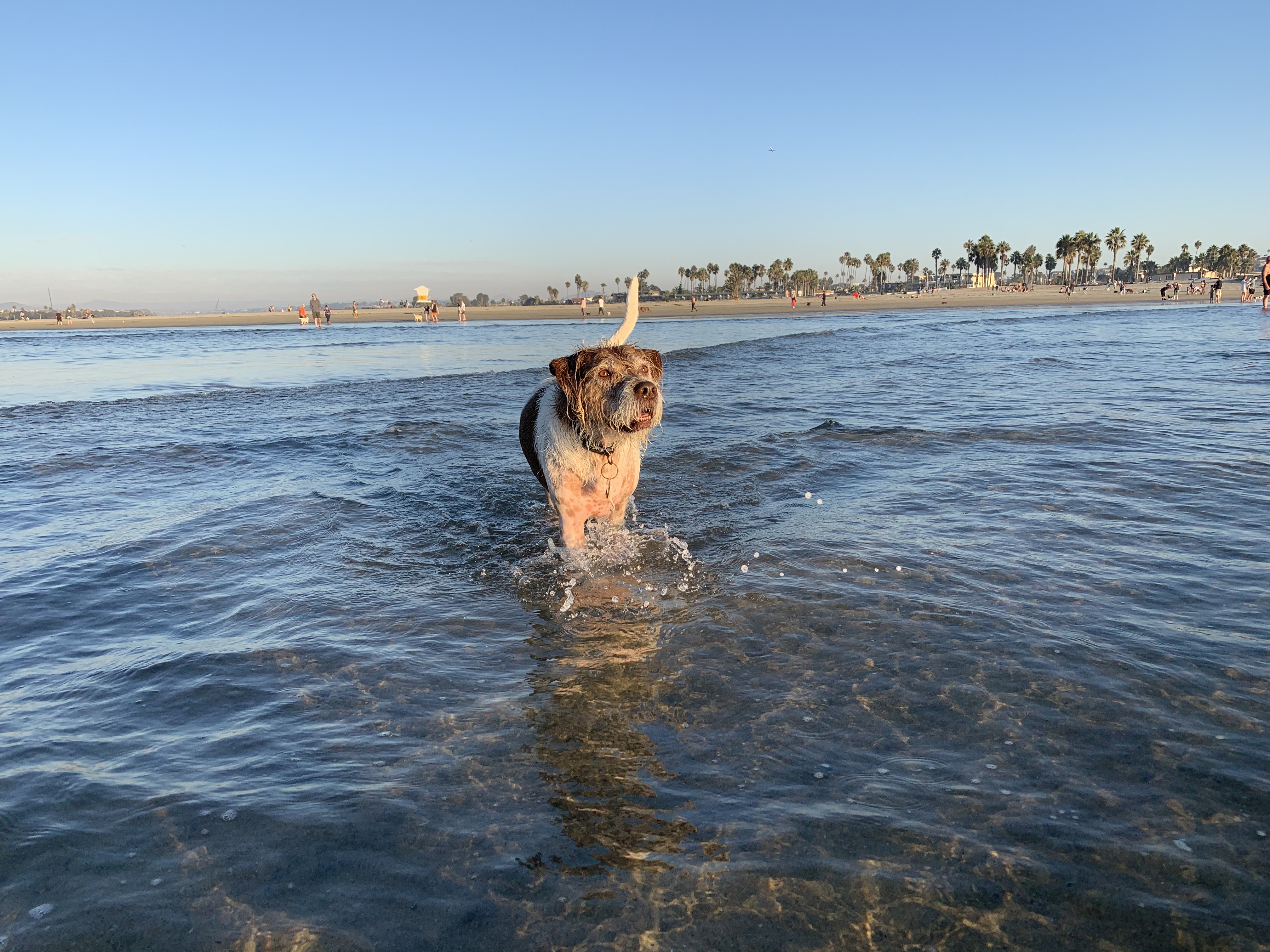Anthropogenic and Climate Impacts on Oyster Microbiomes and Disease
Since joining Scripps Institution of Oceanography in 2019, I have been focused on building research programs to investigate anthropogenic and climate impacts on oyster and water microbiomes, using time-series studies that leverage both culture-based and genomic methods. As sea temperatures rise, so do potential impacts of microbes capable of colonizing oysters and either harming the oysters (and therefore the industry) or people who consume them raw. We have ongoing projects exploring the roles of oyster microbiomes, seawater temperatures, and oyster immune response in contamination of the Pacific oyster by Ostreid herpesvirus 1 (OsHV-1) and Vibrio parahaemolyticus. We are also investigating the role of microplastics; with seed funding from SIO, we are currently exploring “Microplastics as vectors of foodborne pathogens in oysters.”
Understanding the Role of Microorganisms in Mangrove Adaptation and Restoration
Mangrove ecosystems fulfill important socioeconomic and environmental functions, but also suffer from great anthropogenic pressures. Microorganisms present in mangrove sediments and roots play important roles in this ecosystem and make essential contributions to its productivity and stability. There is an urgent need to understand how and why microorganisms promote host health, not just under ideal conditions but also under constant and variable stress. This is particularly important for marine environments, which are globally important but have traditionally gotten less attention compared to agricultural plant-microbe systems. At Scripps Institution of Oceanography, I am collaborating with Dr. Jeff Bowman to explore the role of microorganisms in salinity tolerance of mangroves in reproducible experimental systems, with the long-term goal of developing microbially-mediated interventions to support robust, resilient, and adaptable mangroves. I am an active member of the Mangrove Microbiome Initiative, an international group of researchers aimed at advancing the field through collaboration, discussion, and advocacy.
Exploring Bacterial Associations with SARS-CoV-2
With the ongoing and rapid transmission of severe acute respiratory syndrome coronavirus 2 (SARS-CoV-2) and infection on earth, there is an urgent need to understand factors that either promote or inhibit the spread of viral infections, especially in enclosed environments. In early March 2020, we began collecting environmental and human specimens among confirmed patients with coronavirus disease 2019 (COVID-19) and surfaces in their hospital rooms. By screening for SARS-CoV-2 RNA and profiling microbial communities throughout hospital stays, we are examining the rate at which the hospital environment becomes infected with SARS-CoV-2 and the effectiveness of hospital infection control measures. Furthermore, we are exploring the potential of microbial co-occurrences that may contribute to persistence of the virus in the hospital environment. Beyond the hospital, we are exploring alternative detection methods and also transmission dynamics and microbial associations in the San Diego-Tijuana border region.
Harnessing the Microbiome to Support Food Safety and Security
Food is the fuel of human society, integral to health as well as cultural expression. However, there are many stressors on our food system today, including depletion of freshwater resources, pollution of both land and water, and increasing intensity of extreme weather. In order to feed the world’s population, which is both growing in number and shifting in diet toward more resource-intensive foods, forward-thinking interdisciplinary research is essential. There is a pressing need for innovative solutions that decrease the environmental footprint of agriculture and increase its climate resiliency while maintaining food safety. A vast body of research has shown the integral role that microbiomes play in both human and environmental health. There is enormous unexplored potential in the microscopic world surrounding us. My goal is to harness this world to provide scalable and practical microbe-based solutions to the most pressing needs of terrestrial agriculture and aquaculture today, and to work with farmers and policymakers to lead to tangible change.
Teaching
Microbiomes Across Environments (SIO 186)
Winter 2023, Fall 2023
This course is co-taught with Dr. Jack Gilbert and Dr. Rob Knight. This course is a comprehensive hands-on introduction to microbiome research, tools, and approaches for investigation. Informational and instructive lectures provide background and the latest in microbiome analysis, as well as experimental design, molecular biology, statistics, bioinformatics, and presentation and manuscript writing. Students design and carry out their own experiment, analyze their own data, and write a final report in the format of a scientific journal article.
The Microbiome in Human and Environmental Health (SIO87 B00)
Fall 2020, 2021, 2022
This first-year seminar is co-taught with Dr. Jack Gilbert and features several guest lectures by early career microbiome researchers who lecture on their area of expertise and provide insight into their career journeys. The course provides a comprehensive introduction to microbiome research, tools and approaches for investigation, and a lexicon for understanding the biological role of microbial communities in the environment and in their hosts.
Every Drop Counts: Water, Food, and Global Public Health (ENSP360)
Spring 2018
In-depth interdisciplinary study of the public health issues related to water use for global food production. Topics included accessibility and availability of safe water for agriculture worldwide, potential microbiological and chemical hazards in agricultural water, alternative water sources such as reclaimed wastewater and return flows, food safety approaches to managing agricultural water, and agricultural influences on surface and groundwater quality. Political, social, and economic factors relating to agricultural water were addressed, with special focus on regions that are leaders in innovative water management and regions where access to clean water for agriculture is a major challenge. Classes included lectures, discussions, and field-trips.
Community Engagement
Science Outreach
I enjoy volunteering for organizations that expose students to science activities and invite scientists to share their stories, allowing students to learn about diverse pathways to becoming a scientist. Some recent activities are listed below.
- Ocean Discovery Institute Science Leaders. Virtual Q&A (2022-Present).
- SciTech. Volunteer (2020-Present).
- Futures Unlimited Program. Presenter (2021).
- Oakton Community College STEM Speakers Program. Presenter (Spring and Fall 2020).
San Diego Rapid Response Network
The San Diego Rapid Response Network (SDRRN) is a coalition of human rights and service organizations, attorneys, and community leaders dedicated to aiding immigrants and their families in the San Diego border region. I have volunteered with SDRRN as an airport guide, helping asylum seeking families navigate the airport on their journey to reunite with family or friends in the U.S. as they await immigration hearings.
Volunteer (2018-2019).
Hobbies
Stellarum Chamber Choir
Stellarum is a new San Diego based amateur chamber choir. Led by British composer and choral director Benjamin Thiele-Long, the choir’s repertoire blends early and renaissance European sacred choral music with modern spiritual and secular polyphony from around the world. Stellarum is founded on the principles of encouraging amateur musicianship of all levels. Our aim is to provide a safe and encouraging space to develop and learn a challenging and engaging repertoire while delighting audiences with a beautiful, evocative, and technically excellent performance.
Soprano (2022-Present)
Yeast Culture Club
“Exploring the art and science of fermentation.” This club was started by a small group of graduate students at the University of Maryland to facilitate a sense of community in the Plant Science and Landscape Architecture department and to explore new interests together. Over the course of ~4 years, the YCC brewed countless batches of beer, made botanically-scented soaps, foraged for and cooked with edible wild mushrooms and plants, fermented sauerkrauts, mustards, and hot sauces, dress-rehearsed defense presentations, and supported each other through the rollercoasters of graduate school and life.
Founding member (2014), president (2014-2016), member (2014-2018).
Orfeia
All-woman vocal ensemble dedicated to preserving and sharing traditional music from Bulgaria and Eastern Europe. Orfeia’s repertoire spans the rich and diverse musical heritage of Eastern Europe, Bulgaria, Russia, Georgia and the Balkans, from traditional to sacred and from the Middle Ages to modern day. The captivating sounds of the Balkans are given voice through lush harmonies, unique dissonances and vocal ornaments, unusual rhythms, village songs, custom songs with overlapping lines, antiphonal songs with drones, seasonal music, dance music, and children’s songs. Orfeia is a 501(c)(3) non-profit organization.
Former member (2009-2018), board member (2011-2018), treasurer (2011-2016), vice-president (2016-2018).
Parenting and Dog Beach-ing

